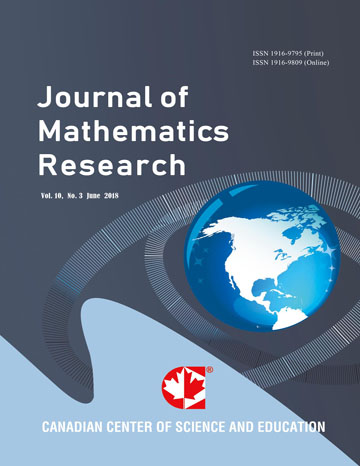Modeling Optimal Control of Cholera Disease Under the Interventions of Vaccination, Treatment and Education Awareness
- Hellen Namawejje
- Emmanuel Obuya
- Livingstone S. Luboobi
Abstract
Cholera is virulent disease that affects both children and adults and can kill within hours. It has long been, and continues to be, a global threat to public health regardless of the advancement of medical science and health care service available. In this paper we formulate and analyze a mathematical model of the dynamics and optimal con- trol strategies for cholera epidemic. We present and analyze a cholera model with controls: u1 for vaccination of the human population, u2 for treatment and u3 for health education campaigns. The basic reproductive number R0; the effective reproductive number Re; as well as disease free equilibrium and endemic equilibrium points are derived. We establish the conditions for optimal control of the cholera disease using the Pontryagin's maximum principle and simulate the model for different control strategies. The results show that vaccination and education campaigns should be applied from start of the epidemic in any community faced with cholera disease.
- Full Text:
 PDF
PDF
- DOI:10.5539/jmr.v10n5p137
Index
- ACNP
- Aerospace Database
- BASE (Bielefeld Academic Search Engine)
- Civil Engineering Abstracts
- CNKI Scholar
- DTU Library
- EconPapers
- Elektronische Zeitschriftenbibliothek (EZB)
- EuroPub Database
- Google Scholar
- Harvard Library
- IDEAS
- Infotrieve
- JournalTOCs
- MathGuide
- MathSciNet
- Open policy finder
- RePEc
- ResearchGate
- Scilit
- Technische Informationsbibliothek (TIB)
- The Keepers Registry
- UCR Library
- Universe Digital Library
- WorldCat
Contact
- Sophia WangEditorial Assistant
- jmr@ccsenet.org
